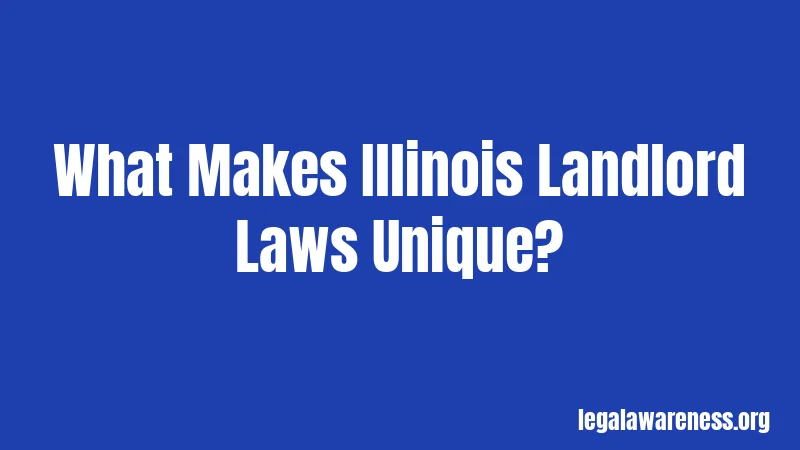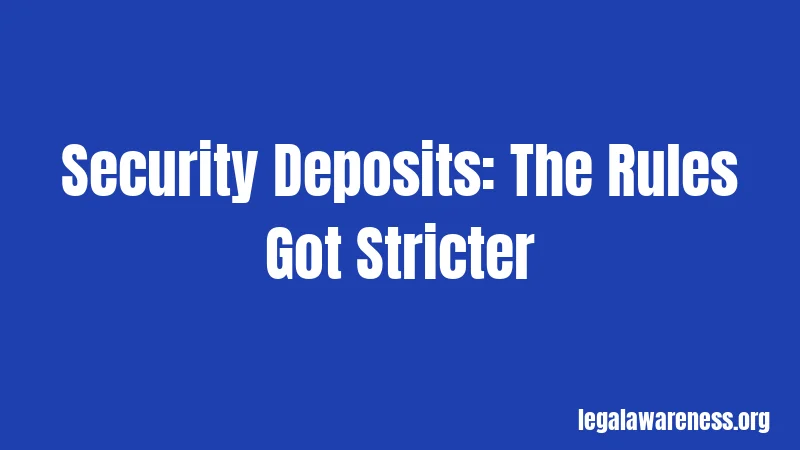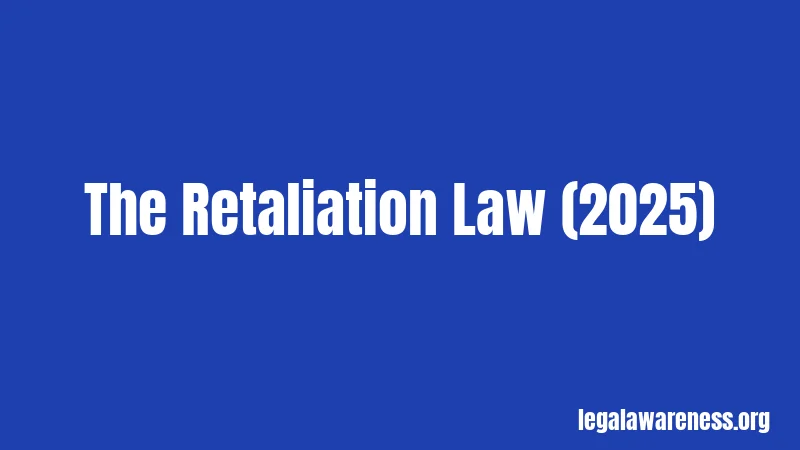Illinois Landlord Laws in 2026: What’s Actually Changed
Most people have no idea how many new landlord rules went into effect recently. Seriously. But if you’re renting property in Illinois, you need to know what these changes mean. Some could save you money. Others could cost you big time if you get them wrong. Let’s break down exactly what you need to know.
Illinois landlords have real responsibilities. The state protects tenants pretty carefully. That doesn’t mean you can’t run a profitable rental business—you totally can. But you’ve got to do it by the rules.
What Makes Illinois Landlord Laws Unique?

Okay, pause. This part matters. Illinois isn’t considered a landlord-friendly state. That means tenants have more legal protections here than in a lot of other places. Think of it like a traffic ticket, but for rental violations.
The big thing? Illinois has the Landlord and Tenant Act. This law sets out the basic rules for pretty much everything. Want to evict someone? There’s a process. Need to keep a security deposit? There are rules. Going to raise the rent? You might need to give notice.
Here’s what separates Illinois from other states: There’s no state-wide rent control. That means you can raise rent as much as you want. But you still have to give written notice first.
Rent Payments and Your New Responsibilities (2025 Changes)
Starting in 2025, Illinois made big changes to how rent gets paid. You’re gonna love this one. Well, actually, some landlords don’t. But the law is the law.
First, you cannot require tenants to pay rent only through electronic means. Nope. Can’t do it. Your tenants can pay with a check, cash, or electronic transfer—their choice.
Why? Because requiring electronic payments can cost your tenants extra. Third-party payment apps charge fees. Illinois says tenants shouldn’t have to pay those fees just to give you money.
Here’s what you actually have to do: If you use a payment portal or app, you must also accept checks or cash with zero fees. No extra charge for paying a different way. That’s totally on you.
Second, you must give written receipts for rent. No exceptions. The receipt needs to show:
The date you received the payment. The exact amount paid. Which apartment or unit it’s for. Your name and address as the landlord.
Pretty straightforward. This stops disputes later. Tenants can prove they paid. You have proof too.
Security Deposits: The Rules Got Stricter

Not sure what counts as a violation? Let me break it down. Security deposits are where most landlord-tenant fights happen. Illinois wants to prevent that.
How Much Can You Collect?
Here’s the important part: Illinois doesn’t have a statewide limit on security deposit amounts. But wait, it gets more specific.
Landlords managing five or more units—or landlords outside city limits—can collect up to two months’ rent. This applies to buildings with 25 or more units in a complex or one building on contiguous land. You must state this clearly in the lease though.
Most other landlords? You can charge what feels fair. Just know that courts can question anything they think is too high.
Your Obligation to Issue Receipts
You must give your tenant a written receipt within 10 days of receiving the security deposit. This isn’t optional. The receipt needs to include:
The amount collected. The date you received it. A description of the property. Your contact information.
That’s all they need. But it has to be in writing.
When Security Deposits Must Be Returned
Hold on, this part is important. Landlords must return security deposits within 30 to 45 days after the tenant moves out. That’s the law. No waiting months and hoping the tenant forgets.
If you’re keeping any portion of the deposit for damages or unpaid rent, you need to provide an itemized statement. This statement should detail exactly what was deducted and why.
What You Can Deduct (And What You Can’t)
You can deduct money for damages that exceed normal wear and tear. Key word: exceed. A few small nail holes? Probably normal. Holes from drilling a mounted TV? That’s deductible.
You can also deduct for cleaning if the tenant leaves the place significantly dirtier than it was. Think sticky floors and months of grime—not a few dust bunnies.
Unpaid rent is fair game to deduct. If your tenant skipped the last month of rent, pull it from the deposit.
Here’s where people mess up: You cannot deduct for cosmetic issues like repainting. Normal paint wear isn’t your tenant’s fault. And you can’t deduct if the item was already damaged when they moved in.
Interest on Deposits
Wondering if you have to pay interest? It depends. If you own a building with 25 or more units (in one building or complex), you must pay interest if the deposit is held for six months or longer.
The interest rate matches what the largest commercial bank in the state pays. In Chicago, it’s currently 0.01%, which is basically nothing. But technically, you must pay it.
For all other landlords? You can choose whether to pay interest. It’s optional.
You’re not alone—this confuses a lot of landlords. The rule is simple though: big landlords must pay it. Small landlords don’t have to.
The New 2026 Requirements (Critical!)
Let’s talk about what changed as of January 1, 2026. There are some serious new rules.
The “Summary of Rights for Safer Homes”
This one applies to every lease you write or renew starting January 1, 2026. You must include a state-issued summary as the first page of every lease agreement.
What’s in this summary? It explains tenant rights related to domestic or sexual violence. It covers:
The right to break a lease early without penalty if facing abuse. The right to change or rekey locks without landlord permission. Protection from eviction based on domestic violence incidents. A list of free legal resources for survivors.
This isn’t optional. If you miss it, courts can award attorney’s fees and actual damages to the tenant. So print it out, attach it, and move forward.
Eviction Complaints Can’t Name Minors
Here’s another 2026 change that matters: You cannot list any minors in eviction filings. Not as defendants. Not as occupants. Not anywhere.
This protects kids legally. If you file your eviction papers with a minor’s name, the court can dismiss your case. Then you have to refile. That costs you time and money.
Make absolutely sure your eviction complaint only names adult leaseholders.
The Retaliation Law (2025)

Okay, this one’s really important. Illinois created a whole new “Landlord Retaliation Act” that took effect January 1, 2025.
Here’s what it says: You cannot punish tenants for protected activities. What counts as protected? Reporting code violations. Complaining to the government. Talking to news media about housing issues.
If your tenant reports a housing violation and then you evict them, raise their rent, or decrease services within one year—the law assumes you’re retaliating. That’s a rebuttable presumption, meaning you’d have to prove you weren’t.
If you lose a retaliation case, the tenant can recover three times their actual damages, plus three months’ rent, plus attorney’s fees. That’s expensive.
Honestly, this is the part most people miss. Don’t raise rent or evict right after a tenant complains. Wait a good amount of time. Document your reasons carefully.
Tenant Protections You Must Follow
Sound complicated? It’s actually not. These are pretty basic.
Repairs and Maintenance
Landlords must keep units habitable. This means safe, clean, and functional. Your tenant can’t live without heat in winter or running water.
If your tenant reports a repair need, you have 14 days to fix it. That’s reasonable. Not three months. 14 days.
If you don’t make repairs in 14 days, tenants can make the repairs themselves and deduct the cost from rent. They have to give you notice first, but this is legally allowed.
Habitability Standards
Your rental must meet local housing codes. It needs adequate heat, hot water, and electricity. Walls and ceilings can’t have holes. Plumbing has to work. No mold or pest infestations.
If you don’t maintain habitability, tenants can withhold rent, break the lease, or sue for damages. Courts take this seriously.
The Flood Disclosure Requirement
Starting in 2025, you must tell tenants if a lower-level unit (basement, first floor) has flooded in the past 10 years. This must be in writing before the lease is signed.
Why? Because tenants deserve to know the risks. If you don’t disclose flooding history and water damages the unit later, you’re liable.
Credit Reports and Tenant Screening (2025 Update)
Here’s where things get interesting for your rental application process.
Starting January 1, 2025, tenants can submit reusable credit reports. These are reports from the previous 30 days. If your tenant gives you one, you cannot charge them a screening fee.
You can access these reports at no cost. You can use them as-is. You don’t get to run your own report instead—that’s the whole point of the law.
This saves tenants money and hassles. They apply to multiple places without paying fees everywhere. You get current credit info. Everyone wins.
The 2026 “Junk Fee” Ban (Coming July 1, 2026)
Wait, it gets better. Illinois House Bill 3564 takes effect July 1, 2026. This law bans “junk fees”—basically, sneaky extra charges.
Starting then, every non-optional fee must be listed on the first page of the lease. This includes:
Application fees (capped at $50, by the way). Pet fees. Parking fees. Maintenance charges. Any recurring or one-time cost that’s required.
If you don’t list it on page one, tenants aren’t liable for it. Period.
This part can be tricky, honestly. Go through your lease right now. Look for hidden fees. Make sure they’re all on the first page. You have until July 1, 2026, so use that time.
No Rent Control (But Notice Is Required)
Let me be clear about this: Illinois has zero state rent control. You can raise rent to any amount you want. No caps. No limits.
But you still need to give notice. For month-to-month tenants, most leases require 30 days’ notice for a rent increase. For fixed leases? You can’t raise rent until the lease ends.
Check your lease agreement to see what notice period it requires. It can vary.
Eviction Process and Rules
Most people don’t realize how formal evictions actually are. You cannot just change locks or remove a tenant’s belongings. That’s illegal.
Here’s the real process:
You give written notice stating the reason for eviction. For nonpayment, you give five days to pay. For lease violations, you give 10 days’ notice. If they don’t fix it or leave, you file a lawsuit. The court handles everything from there.
The eviction takes time. We’re talking weeks or months, not days. Expect costs for court filings, service, and potentially an attorney.
Important Disclosures You Must Provide
Trust me, this works. Landlords who disclose everything avoid most disputes.
You must disclose:
Carbon monoxide testing and maintenance information. How master metered utilities are calculated (if applicable). Any flooding risks. Radon hazards (though testing isn’t required—just inform them). Rent concessions clearly marked on the lease.
All of these must be written.
Penalties for Breaking the Rules
Here’s where it gets serious. What happens if you mess up?
Security Deposit Violations
If you don’t return a security deposit properly or provide an itemized statement, courts can make you pay twice the deposit amount, plus court costs and attorney’s fees.
That $1,500 deposit violation just cost you $3,000, plus legal fees. Could easily hit $4,000 or $5,000.
Retaliation Violations
If you retaliate against a tenant for reporting violations, they can recover three times their damages, plus three months’ rent, plus attorney’s fees.
Do the math. That adds up fast.
General Violations
Violating various landlord-tenant laws can result in fines, small claims court judgments against you, or civil lawsuits. Some violations are criminal misdemeanors too.
A friend asked me about this last week. Most landlords assume they won’t get caught. They often do. Don’t be one of them.
Special Circumstances and Exceptions
Not everything in Illinois law applies everywhere. Chicago and Cook County have their own ordinances on top of state law. Some rules are stricter there.
Owner-occupied buildings with six units or fewer have some exemptions. But honestly, most rules still apply.
If you own property in Chicago specifically, you need to know the Chicago Residential Landlord and Tenant Ordinance (RLTO). It has different rules on some things. Look it up for your specific situation.
How to Stay Compliant
Here’s what you need to do right now. Don’t wait.
Update your lease templates. Add the 2026 “Summary of Rights” on page one. List all non-optional fees on page one. Make sure your rent payment policies comply (allow checks and cash). Create a system for issuing receipts for rent and deposits within required timeframes. Review your eviction procedures—make sure minors aren’t listed.
Document everything. Keep copies of all notices, receipts, and communication with tenants. If disputes come up, documentation saves you.
Train anyone who helps you manage properties. They need to understand these rules too. One mistake by an assistant can cost you thousands.
Consider using property management software or forms that are built for compliance. It’s way easier than trying to remember everything.
Frequently Asked Questions
Can I require tenants to pay rent only through my app?
No. Starting in 2025, you must accept checks or cash with no extra fees. If you offer an electronic option, offer alternatives too.
What if a tenant pays rent late?
Illinois allows you to charge late fees, but they must be reasonable. Courts won’t enforce excessive fees. The amount should match your actual damages.
How much notice do I give to raise rent?
For month-to-month leases, check your lease—it typically says 30 days. For fixed-term leases, you can’t raise rent during the lease term unless the lease allows it.
Can I charge for cleaning the unit?
Yes, but only for deep cleaning beyond normal move-out cleaning. A basic cleaning that brings it to move-in condition isn’t deductible.
What if I discover a flooding problem after the tenant moves in?
You weren’t required to disclose it, but if a lower-level unit flooded in the past 10 years, you should have. If you didn’t, courts may find you liable for damages.
Final Thoughts
Illinois landlord laws are evolving. The state is clearly leaning toward tenant protections. But here’s the good news: most of these rules just require honesty and documentation.
If you disclose everything, handle money properly, make timely repairs, and don’t retaliate, you’ll stay compliant. Running rentals transparently actually makes your life easier. Tenants respect fairness. Disputes drop. Renewals increase.
Now you know the basics. Keep an eye on your lease agreements. Stay organized with documentation. And when in doubt? Ask a lawyer or your local housing authority. Fifteen minutes with an attorney now beats thousands in legal fees later.
References
Illinois Landlord and Tenant Act – 765 ILCS 710
Illinois Department of Human Rights – Landlord Tenant Resources
Illinois Attorney General – Landlord and Tenant Rights and Laws
City of Chicago – Residential Landlord and Tenant Ordinance
Chicagoland Apartment Association – 2026 Illinois Rental Law Changes
